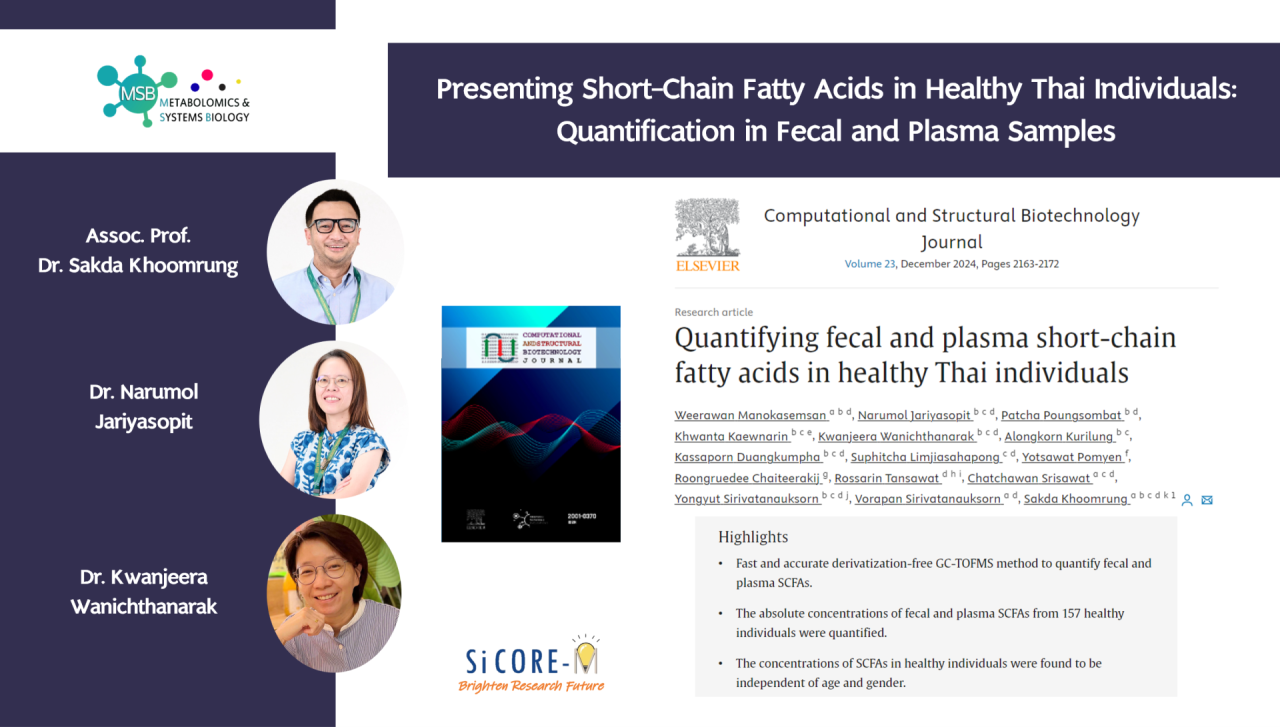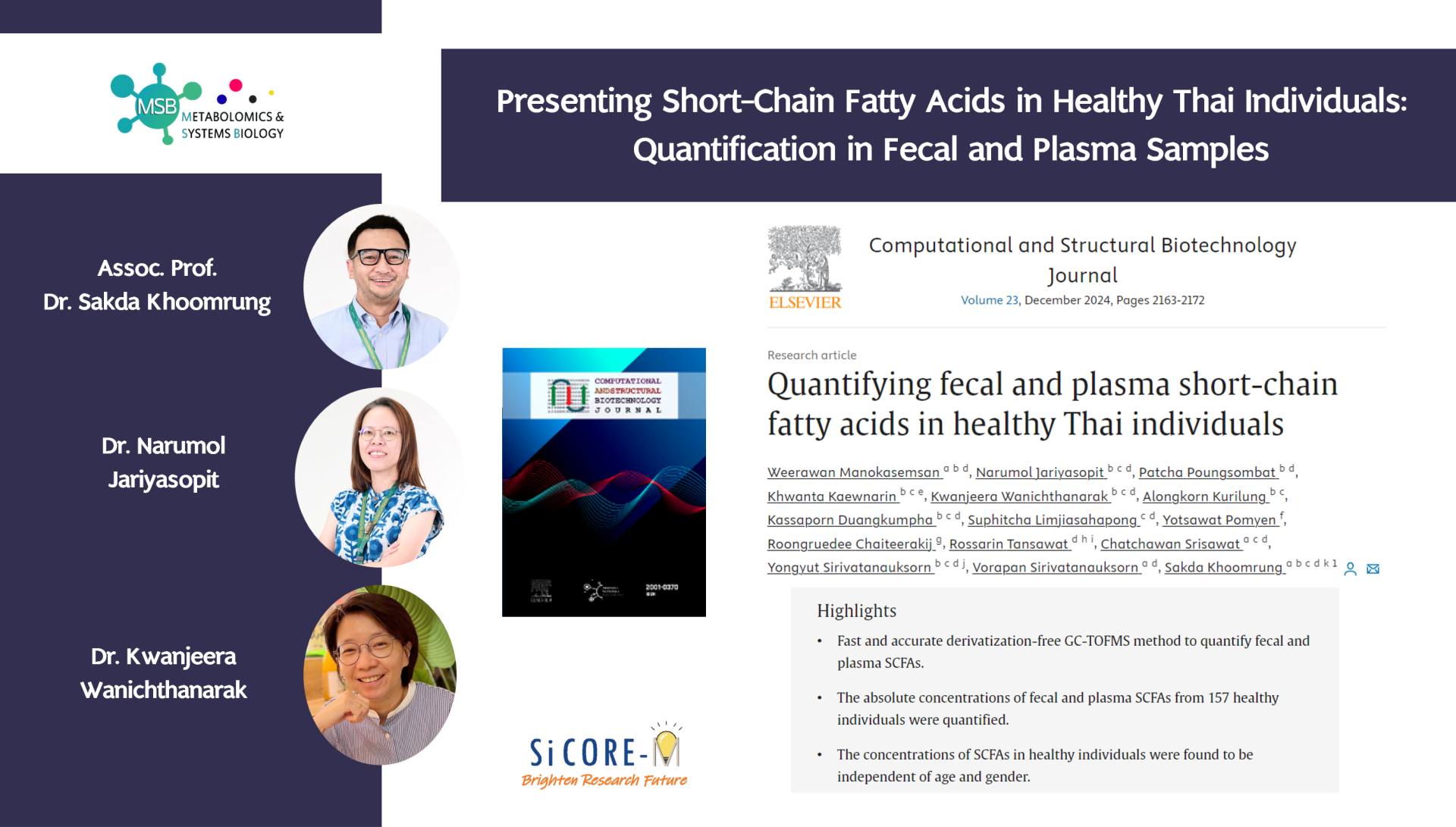Presenting Short-Chain Fatty Acids in Healthy Thai Individuals: Quantification in Fecal and Plasma Samples
We are excited to announce the publication of groundbreaking research by Assoc. Prof. Dr. Sakda Khoomrung (Corresponding author) from the Siriraj Center of Research Excellence in Metabolomic and Systems Biology (SiCORE-MSB), Faculty of Medicine, Siriraj Hospital, Mahidol University, in the Computational and Structural Biotechnology Journal on May 8, 2024. For those interested in this publication, please access via the following link: https://www.sciencedirect.com/science/article/pii/S2001037024001533?__cf_chl_tk=1Imkemndfujss_Lappc4CaRwf39XvoFMHevm0jjx6cc-1716456031-0.0.1.1-1386
In this study, we developed a simple and reliable derivatization-free GC-TOFMS method for quantifying fecal and plasma Short-Chain Fatty Acids (SCFAs) in healthy individuals. Targeting six linear- and seven branched-SCFAs, we achieved method recoveries of 73–88% and 83–134% in fecal and plasma matrices, respectively. These developed methods offer simplicity, speed, and sensitivity superior to previously published methods, making them well-suited for large-scale studies. Analysis of samples from 157 medically confirmed healthy individuals revealed that total SCFAs in feces and plasma averaged 34.1 ± 15.3 µmol/g and 60.0 ± 45.9 µM, respectively. Notably, acetic acid (Ace), propionic acid (Pro), and butanoic acid (But) were significant contributors in fecal samples, collectively constituting 89% of total SCFAs. At the same time, Ace predominated in plasma samples, accounting for 93% of total plasma SCFAs.
Interestingly, there were no statistically significant differences in total fecal and plasma SCFA concentrations between sexes or age groups. However, the findings revealed positive correlations between several nutrients, including carbohydrates, fats, iron from vegetables, and water, and the most targeted SCFAs.
This study represents the first large-scale investigation reporting SCFA reference intervals in the plasma and feces of healthy individuals, providing valuable insights for microbiome, metabolomics, and biomarker research.




